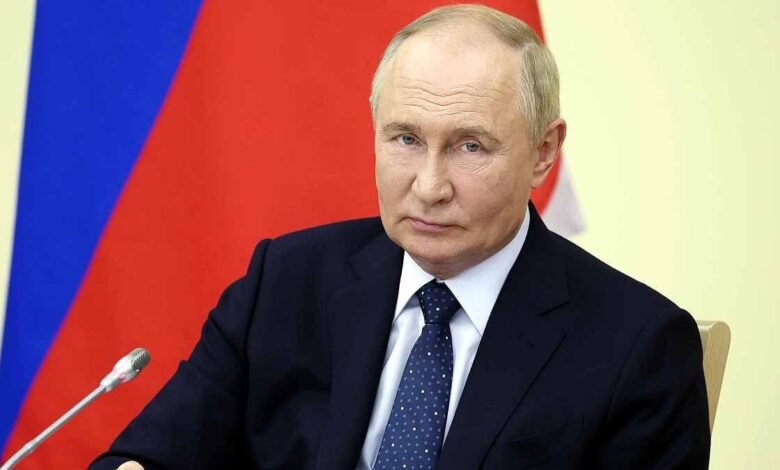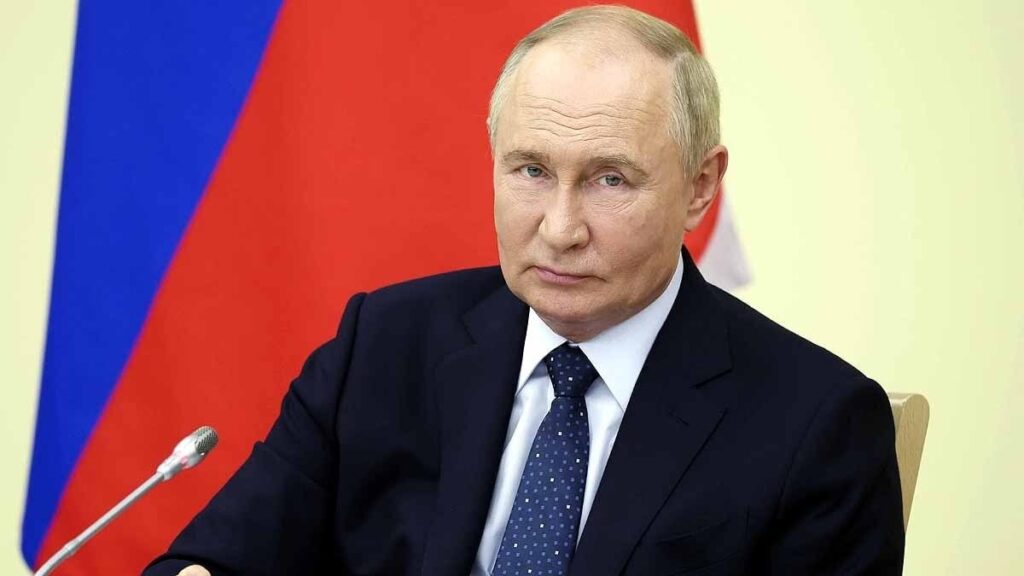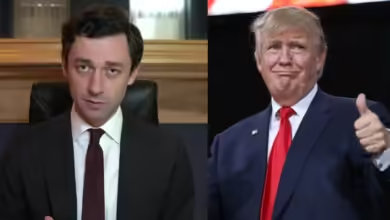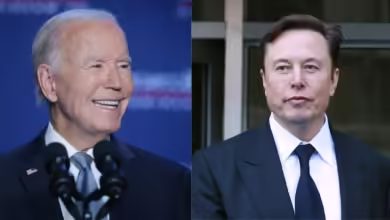Putin’s Nuclear Doctrine Update: A Grave Warning to the West

The global political landscape has taken a sharp turn with Russian President Vladimir Putin issuing a stark warning about the potential use of nuclear weapons. His recent speech has sent shockwaves across international media, with leading news outlets like Al Jazeera, The Guardian, and CNN all headlining the same chilling statement: “Putin Issues Nuclear Warning to the West Over Strikes on Russia from Ukraine.” This time, the threat seems far more serious as Russia prepares to update its nuclear doctrine, allowing legal grounds for the use of nuclear weapons in response to certain military actions. Let’s delve deeper into the implications of this pivotal moment in geopolitics.
Putin’s Nuclear Warning: A Turning Point for Global Security
The statement from Vladimir Putin has raised global concern, not only for its content but for its timing. Russia’s leader openly declared that his country could use nuclear weapons if Russia is attacked by a non-nuclear state, supported by a nuclear power. This marks a dangerous shift in how Russia may legally justify nuclear action in future conflicts.

A Long-Standing Threat Revived
Putin’s recent remarks are not the first time Russia has hinted at using nuclear weapons during its conflict with Ukraine. For months, Russia’s nuclear threats have been dismissed by many in the West, reminiscent of China’s “final warning” syndrome—a series of threats that never materialize into action. However, this time, Putin’s speech is different. He emphasized that Russia’s nuclear doctrine is officially being updated, signaling that this is not mere rhetoric.
Russia’s Nuclear Doctrine: What’s Changing?
Historically, Russia, like all nuclear-armed nations, has maintained a formal doctrine outlining the specific scenarios in which it would use nuclear weapons. This doctrine has acted as a critical safeguard against the random or reckless deployment of nuclear arms.
New Provisions for Preemptive Strikes
The changes Putin is pushing through involve scenarios where Russia could act preemptively if credible intelligence suggests an imminent attack on Russian soil, whether by airstrikes or drone assaults. This raises the stakes significantly, as even the threat of such an attack could legally justify a Russian nuclear response.
Kamala Harris’s Recent Remarks Ignite Debate: A Closer Look at Political Messaging
The updated doctrine no longer requires an actual strike to occur. If Russian intelligence suggests an imminent threat, the doctrine would allow nuclear weapons to be deployed in response. This new policy puts the world on edge, as any miscalculation or misinterpretation of data could lead to devastating consequences.
The Global Response: A Mix of Alarm and Dismissal
Western Nations Take Putin’s Threats Lightly
Despite the gravity of Putin’s remarks, many Western countries appear to be taking these warnings lightly. Over the past year, Western countries have continued to provide military aid to Ukraine, despite Russia repeatedly drawing “red lines.” The supply of long-range weapons and air defense systems to Ukraine, which Moscow had previously declared unacceptable, continues unabated.
Red Lines Becoming a Joke?
Much like China’s “final warning,” Russia’s so-called red lines have been crossed numerous times by NATO countries. The lack of severe retaliation from Moscow has emboldened the West, leading to a general sense of complacency about Russia’s nuclear warnings. Some geopolitical experts have gone so far as to suggest that Russia’s red lines have become a joke, with even a Wikipedia page listing the numerous times these lines have been ignored.
The Implications of Ignoring Russia’s Threats
While some may dismiss Putin’s latest speech as more saber-rattling, there is a growing concern that Russia is serious this time. The revision of its nuclear doctrine is a clear indication that Moscow is preparing for a worst-case scenario. Ignoring these warnings could be a dangerous miscalculation.
Nuclear Escalation: A Real Possibility?
Russia’s nuclear doctrine change makes it possible for the country to launch a nuclear strike even before an attack occurs. This is a significant escalation from the previous stance, where nuclear weapons were seen as a last resort. Should Russia perceive an imminent threat—whether real or exaggerated—the risk of nuclear war could increase dramatically.
What’s Next?
The world now faces an uncertain future. Western nations must carefully balance their support for Ukraine with the potential consequences of pushing Russia too far. The West’s dismissal of Russia’s nuclear threats may have worked up until now, but with the official change in Russia’s nuclear doctrine, this approach may no longer be wise.
In the coming weeks, international observers will be watching closely to see how Russia enacts its revised policies and how the West reacts. Any miscalculation could lead to dire consequences, not just for Europe, but for the entire world.
Conclusion: The Fragility of Global Peace
In conclusion, Putin’s announcement is more than just a political maneuver—it’s a stark reminder of the fragility of global peace. The world is inching closer to a dangerous precipice, and the need for careful diplomacy has never been more urgent. As Russia updates its nuclear doctrine, global leaders must take the necessary steps to prevent an escalation that could have catastrophic consequences.






One Comment